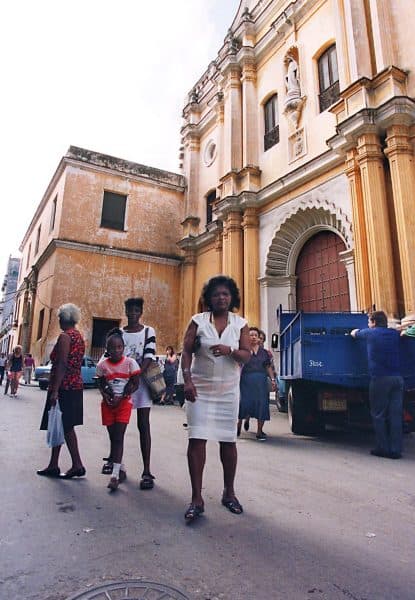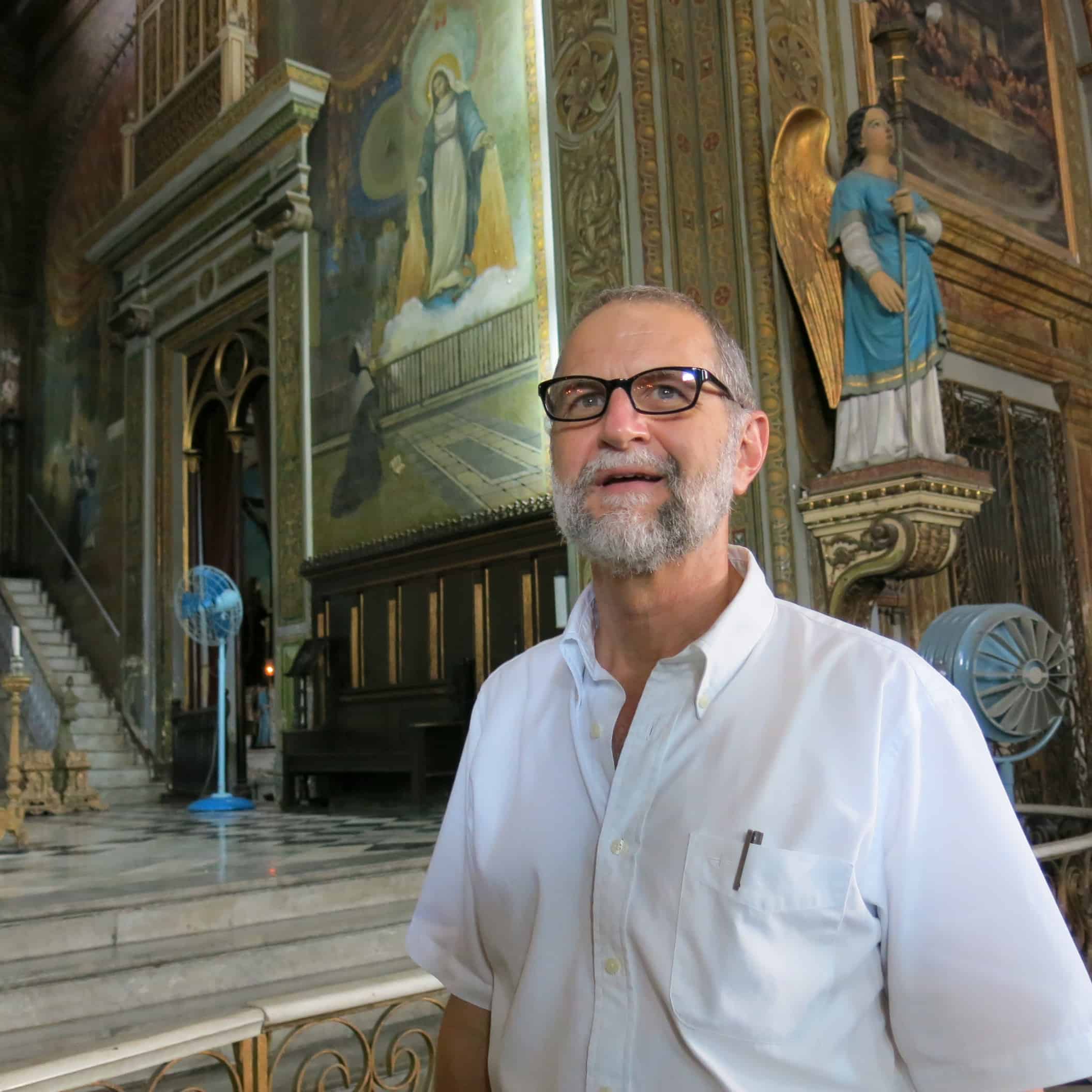HAVANA – The parishioners at La Merced church in Old Havana, one of Cuba’s most important shrines, know their bearded, soft-spoken priest as “Padre Gilberto.” But his real name is Gilbert Walker. He’s from Gulfport, Mississippi.
Walker, 56, has been a priest at La Merced for 12 years. He was the only U.S. Catholic clergyman in Cuba when he arrived in 2003. Today there are two others, but over the past half-century of strained relations between the United States and Cuba, no U.S. priest has been a missionary on the island for as long as Walker.
“I felt at home in Cuba from the first moment I arrived,” he said, speaking at the rectory where he lives behind the soaring 147-year-old church, set along narrow streets among crumbling apartment buildings. “I can’t imagine myself any other place.”
“Sure, life would be easier and more comfortable in the United States,” he added. “But I didn’t become a priest to have an easy life.”
When Pope Francis arrives in Havana on Saturday afternoon, he will find a diminished Catholic Church struggling to recover its place in Cuban life. About half of the island’s 360 or so priests are foreign-born, mostly from Latin America and Spain.
Cuba had about 700 priests when Fidel Castro took power in 1959. Relations between his government and church authorities who opposed him went sour and hit a low point in 1961, a few months after the failed Bay of Pigs invasion, when Castro expelled 131 clergy members aboard a Spanish ship. The Vatican responded by excommunicating the young Cuban communist.
Church-state relations have improved significantly since then, though difficulties remain. Today Havana has a new seminary, where Walker works as a spiritual counselor, and he is training seven seminarians in his ecclesiastical order, the Vincentians. Its members are inspired by St. Vincent de Paul, a 17th-century French priest who dedicated himself to the poor.
Francis will be on unfamiliar ground as he visits Cuba for four days and then travels to the United States, having never been to either country. The pope told Cubans in a taped message broadcast on state television Thursday night that he will arrive as “a missionary of mercy.” For more than a decade, that too has been Walker’s view of his work in Cuba.
“I’m excited about what his visit might mean for us,” Walker said. “There is a great need here for forgiveness and reconciliation. It’s a human need, really, and I think his message is going to be about people reconciling with God and with each other – where there is conflict, grudges and a desire for vengeance.”
See also: For Pope Francis, an unfinished mission in Cuba

Foreign missionaries who work in Cuba need visas, but Walker said he’s never experienced any hostility or suspicion as a U.S. priest in Cuba. He came for the first time in 1991, soon after his ordination, and made several trips after that.
“I saw the need for priests here, particularly among the Vincentians,” he said.
Walker “lives in a poor neighborhood and spends his time with the poor, and with young people,” said the Rev. Yosvany Carvajal, director of the Padre Varela Cultural Center, also in Old Havana. “He is a beloved figure, and he’s tireless.”
“We would love for more American missionaries like him to come here,” Carvajal said.
The La Merced church where Walker lives is one of Havana’s most ornate, with elaborate frescoes and a soaring cupola. Built largely by masons from Spain’s Catalonia region, it has the dark, worn feel of an old Spanish or Italian cathedral.
“To be honest, I like more natural light, and simplicity,” said Walker, laughing.
Pope Francis and chickens
The church is also one of the most important shrines for practitioners of Afro-Cuban Santería. La Merced is associated with Obatalá, the father of all orisha spirits, whose color is white.
“We often find offerings left here like coconuts, merengue pastries and white cakes,” he said. “Sometimes it’s a white dove sacrificed and left at the doorstep – which is not pleasant – or a chicken.”
“I’d rather people eat the chickens.”
Walker said his pastoral challenge is to steer his parishioners to Catholic teachings, while not alienating them by condemning their Santería traditions.
“Santería uses Christian symbols, but it is devoid of Christian content,” he said. “Our challenge is to be welcoming to all people and be respectful of people’s beliefs, but also to be clear about what we believe as Catholics.”
Walker was serving as a missionary in the Dominican Republic when he asked to move to this country. “I was very happy there,” he said, “but I felt a strong pull to Cuba.”
It was more than a spiritual calling. Walker’s great-grandparents lived for 35 years in a tiny rural town along Cuba’s north coast, in what is now the province of Las Tunas, where his great-grandfather managed a sugar mill.
“As I found out, my great-grandfather had a relationship with a young Cuban woman, and they had a daughter that no one in my family knew about,” Walker said.
Walker was able to locate his great aunt and her family. He said he has grown close to his Cuban cousins, who live in the Central Havana neighborhood where he celebrates Mass at a chapel several times a week.
“It was God nudging my heart to Cuba so I could find my family,” he said.
© 2015, The Washington Post






